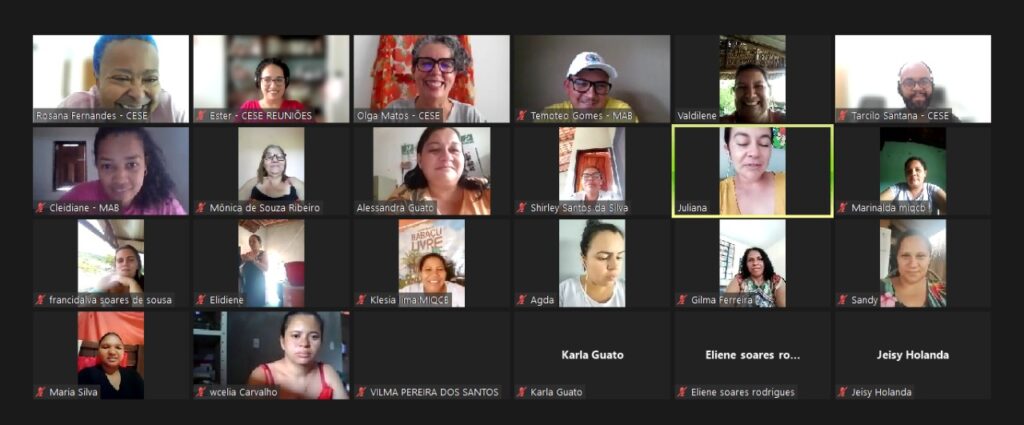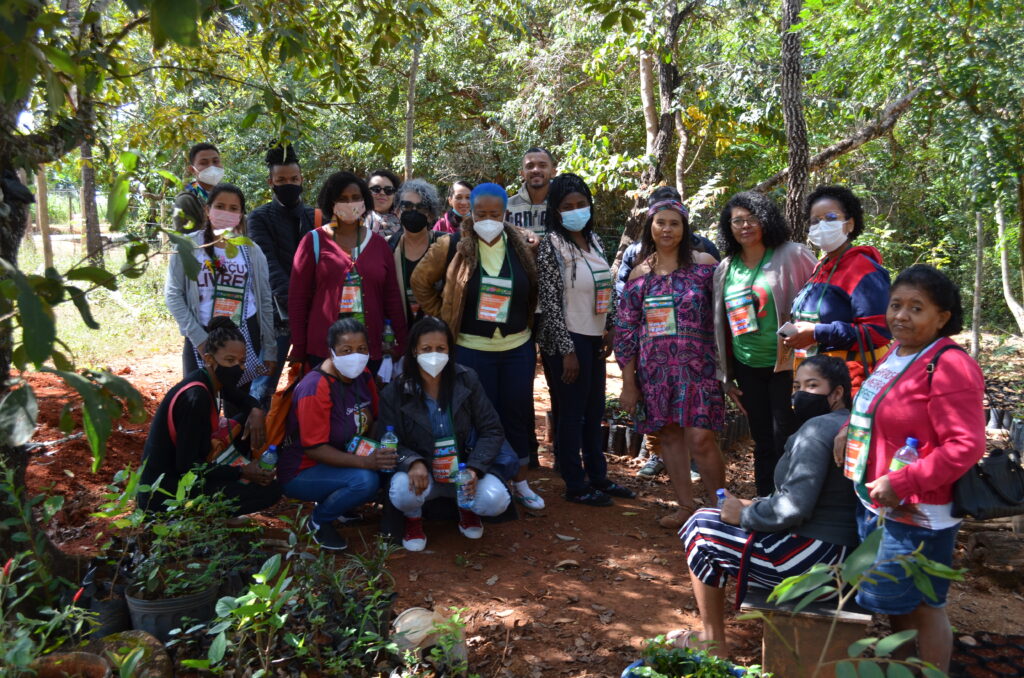
The 30 November was set aside for a moment of assessment within the “Racism and Food Systems” project, run by CESE in partnership with the Ibirapitanga Institute. Representatives of the groups that participated in the training sessions and whose projects were supported throughout 2022 came together to share their impressions of what worked well in the project, and what could be improved for future partnerships.
Overall, the meeting’s aim was to investigate how the small projects supported by CESE and run by the organizations impacted on their communities, whether they contributed in any way to the perception of racism in the territories or had an impact on their food systems. A further aim was to find out what were the main challenges encountered in the drafting and execution of projects.
Several initiatives were supported. These ranged from learning about how to facilitate organic insecticide production for use in orchards and nursery gardens, to understanding what environmental racism is and how it affects traditional peoples and communities. In 2022, the project continued to be a point of support for these populations, something the meeting participants assessed.

The project also marked CESE’s return to in-person activities outside its offices. In May, groups from various states went to Brasilia to participate in a meeting which included training, a workshop in how to draft projects and an exchange with a visit to the Mesquita Quilombo, which has been a historical landmark for 276 years and houses approximately 800 families.
Agda Moreira, from the Mariana Crioula Female Quilombolas from Minas Gerais (Mulheres Quilombolas de Minas Gerais Mariana Crioula), noted that this was a positive moment for the women from her community and that exchanging knowledge with the leaders there improved their self-esteem. “Because of this project we created a coordination group for women.”
Marinalda Silva from the Interstate Movement of Babassu Coconut Breakers (Movimento Interestadual das Quebradeiras de Coco Babaçu: MIQCB), talked about the importance of the project’s training sessions for the approval of the Free Access to the Babassu Law, currently awaiting approval by the state government.
Angélica Gonçalves from the Young Guarani Kaiowá Aty Repossession (Retomada Aty Jovem Guarani Kaiowá: RAJ) pointed out that the project supported the mobilization of young people to participate in an activity about gender in her community.
Temóteo Ferreira, from the Movement of People Affected by Dams (Movimento dos Atingidos por Barragens: MAB) praised both the objective results of the supported projects, and the groups’ levels of self-sustainability in running them. “We know that the situation in the associations, the movements, isn’t easy. Financially, the project helped us in this regard, so that we could go to the communities, talk, hold meetings,” he noted.
A few challenges were noted by the groups. Alessandra de Arruda, from Takiná – the Organization of Indigenous Women from Mato Grosso (Takiná – Organização de Mulheres Indígenas de Mato Grosso) noted the difficulty of reconciling running the project with daily tasks. “It’s complicated, but we carry on fighting because the women need this support.”
The pandemic was also a huge obstacle to these processes, both because of its impacts on people’s personal lives, due to the groups’ limited mobility, and because of having to run activities online, due to problems accessing the internet. Deadlines were another limitation noted by the organizations.

